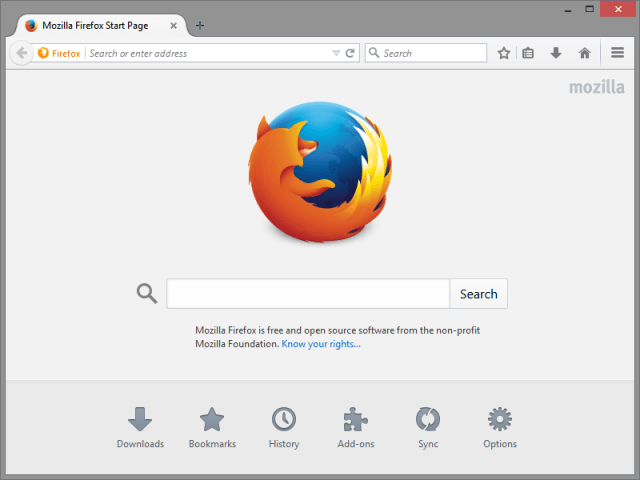Next Generation Java Plug-in 10.21.2 for Mozilla browsers NPRuntime Script Plug-in Library for Java(TM) Deploy. Are you deleting Firefox portable for a specific reason (like to troubleshoot it). If you'd like, using regular Firefox is often more reliable, you can download and install it from www.getfirefox.com (you need to update anyway).
This article is no longer maintained, so its content might be out of date.

- This page is your source to download or update your existing Java Runtime Environment (JRE, Java Runtime), also known as the Java plug-in (plugin), Java Virtual Machine (JVM, VM, and Java VM).
- Many of the most common issues that arise when using Mozilla Firefox, Portable. The Firefox Portable. Install the plugin in a local copy of Firefox.
Beginning with Firefox version 52, support has ended for all NPAPI plugins except for Adobe Flash. See this compatibility document and this article for details.
Many web pages use Java applets for interactive content such as online games. Before Firefox can run Java applets you must have the Java plugin properly installed and enabled. Java is a programming language that can run on Windows, Mac, Linux, and other computer systems. This article will help you install or update Java and get it working in Firefox.
- Java is not the same as JavaScript (see this article for information about JavaScript).
Table of Contents

- 1Installing or updating Java
- 4Troubleshooting
- 4.1Java plugin does not appear in the Add-ons Manager
- 4.2Other solutions
Manual install or update
- Go to the download page at java.com.
- Click the Free Java Download button.
- Click the Agree and Start Free Download button to download the Java installer to your computer.
- After the download is complete, close Firefox.
- Open the file you downloaded to start the Java installation.
Automatic update
Java for Windows includes an automatic update feature that periodically checks for updates and notifies you when an update is available for installation. You can view or change your update settings in the Update tab of the Java Control Panel, where you can also manually check for updates. For more information, see the Java Help page, What is Java Auto Update? How do I change notify settings?.
To eliminate potential security vulnerabilities and to save disk space, you should remove any older Java versions that may still be installed. For more information, see the Java Help page How do I uninstall Java on my Windows computer?.
Mac OS X 10.6 and below
Java is installed with the operating system. To update Java, use the Mac OS X Software Update feature.
Mac OS X 10.7 and above
Java is not installed by default. To install the latest version of Java, go to the download page at java.com. See the Java Help page How do I install Java for my Mac? for system requirements and installation instructions.
To update Java, go to your Apple System Preferences, click the Java icon to launch the Java Control Panel, then go to the Update tab and click on the Update Now button. See the Java Help page How do I update Java for my Mac? for details.
See Oracle's Manual Installation and Registration of Java Plugin for Linux article for help installing or updating Java on your Linux system.
To test whether Java is installed and enabled in Firefox, visit one of these Java test pages:
- Verify Java Version (alternate)
If Java is not working, make sure that the Java plugin is enabled in the Add-ons Manager:
- Click the menu button , click Add-ons and select Plugins.
- Click on the Java(TM) Platform pluginJava Applet Plug-inJava plugin to select it.
- If Java is disabled, click on Never Activate to open its drop-down menu and select the option to activate Java. The recommended (default) option is Ask to Activate, which lets you run Java when prompted.
If Java is installed but doesn't work, try these solutions:
Java plugin does not appear in the Add-ons Manager
If the Java plugin does not appear in the Add-ons Manager, even though Java is installed, try each of the following, one at a time, and then reopen Firefox to see if that resolves the problem:
Remove the pluginreg.dat file
With Firefox completely closed, delete (or rename) the pluginreg.dat file, located in the Firefox profile folder (it will be regenerated once you restart Firefox but any other plugins you may have disabled will be enabled). See Re-initializing the plugins database for detailed instructions.
Make sure Firefox is not in 32-bit mode
The Java 7 plugin will only run in 64-bit browsers so confirm that you aren't running Firefox in 32-bit mode.
- Open the Applications folder in Finder
- Right-clickHold down the control key while you click the Firefox.app
- Select Get Info
Make sure the box in front of Open in 32-bit mode is not checked (if it is, clear the checkbox).
Make sure Java is enabled in the Java Control Panel
Starting in Java 7, the Java Control Panel includes the Security option, 'Enable Java content in the browser', which is selected by default. De-selecting this option will prevent Java applets from running in any browser and the Java plugin will no longer appear in the Firefox Add-ons Manager. Make sure that Enable Java content in the browser is selected in the Java Control Panel Security tab. See this Java Help page for details.
Make sure the 32-bit version of Java is installed
On 64-bit Windows, if you only have the 64-bit version of Java installed, the Java plugin will not be available. Current Firefox releases are 32-bit browsers and you will need to install the 32-bit version of Java.
Make sure plugin scanning is not disabled
Mozilla browsers use plugin scanning to locate installed plugins so you should make sure that the plugin.scan.plid.all preference has not been disabled:
In the address bar, type about:config and press EnterReturn.
- The about:config 'This might void your warranty!' warning page may appear. Click I accept the risk! to continue to the about:config page.
- Search for the preference plugin.scan.plid.all
- If it's been set to false, right-click on it and select 'Reset'.
Uninstall JavaFX if installed
In some cases, after updating from an earlier Java version to Java 7 Update 10 or above, the Java(TM) Platform plugin is no longer detected. This can be caused by a conflict with Java and a standalone installation of JavaFX that prevents the Java plugin from being properly registered. To resolve the problem, uninstall JavaFX. For more information, see this java.com help page.
Other solutions
If Java is installed and enabled (see above) but isn't working properly, try the following:
Remove outdated Java plugin files
Make sure that multiple versions of the Java(TM) Platform plugin are not being detected. For example, if Java 7 Update 51 is currently installed, the Java(TM) Platform plugin in the Add-ons Manager tab should be listed as Java(TM) Platform SE 7 U51. If you see other 'Java(TM) Platform' versions listed, uninstall the older versions (see How do I uninstall Java on my Windows computer?) or else remove them manually (see Manually uninstalling a plugin).
Check for other software that may block Java
Even if Java is installed and enabled in Firefox, it may be blocked by other software or Firefox add-ons, for example:
- The ZoneAlarm Pro software firewall can block Java. For more information on enabling Java through this program, see the ZoneAlarm Pro forum.
- The NoScript extension for Firefox will block Java. For more information, see the NoScript FAQ.
- The Java FAQs page at java.com answers some frequently asked questions.
Based on information from Java (mozillaZine KB)
Install Java Plugin
For an old KVM switch I need to run a browser with Java 1.6. But for all other cases I want to use the latest Java browser plugin which is 1.7.
On Linux I can create two profiles and put in each a symbolic link to the Java plugins. By this I can easily create two profiles: one for Java 1.6 and on for Java 1.7.
How to achieve the same on Windows?
It seems to me that the Java version which should be run in the browser is taken form a registry key. This makes it impossible to have two browsers with two different Java plugins on the same machine. Product key for 3ds max 2015. How to work around this limitation/design error?
Marvell avastar wireless ac driver. After I got it started it recognized the network and there was no problem. Yesterday the battery was low and I set it to recharge. Router WNR2000v4 at the same time, so I could go online. After I started it up again it won't go online.
There is already a similar question about IE and Java 1.5/1.6 but it has also no answer.
2 Answers

Use a portable Firefox together with a portable version of Java 1.6 as second browser.
This way, you can still use your primary installed Firefox together with your installed Java 1.7
Firefox Java Plugin Is Not Supported
You need 3 things:
- Firefox Portable: The launcher
FirefoxPortable.exeautomatically detects portable Java versions - jPortable: PortableApps.com is hosting a portable version of Java on sourceforge.net.
There we find archives for older Java versions including some Java 1.6 versions » Yeah! When extracting jPortable and Firefox Portable you have to set up the correct installation paths. Otherwise Firefox cannot detect Java 1.6.
As you see, the Firefox launcher jumps one folder level up and looks for a folder called
CommonFilesand loads all plugins placed inside
proof screen
It's possible you will see both Java versions in Firefox Portable under Addons » Plugins. Just disable Java 1.7 so your second browser will only use 1.6
You may want to look into http://browserstudio.com/. It's from the application virtualization folks at Spoon.net. You can mix Firefox, IE or Chrome with a number of add-ons/plug-ins, including Java.